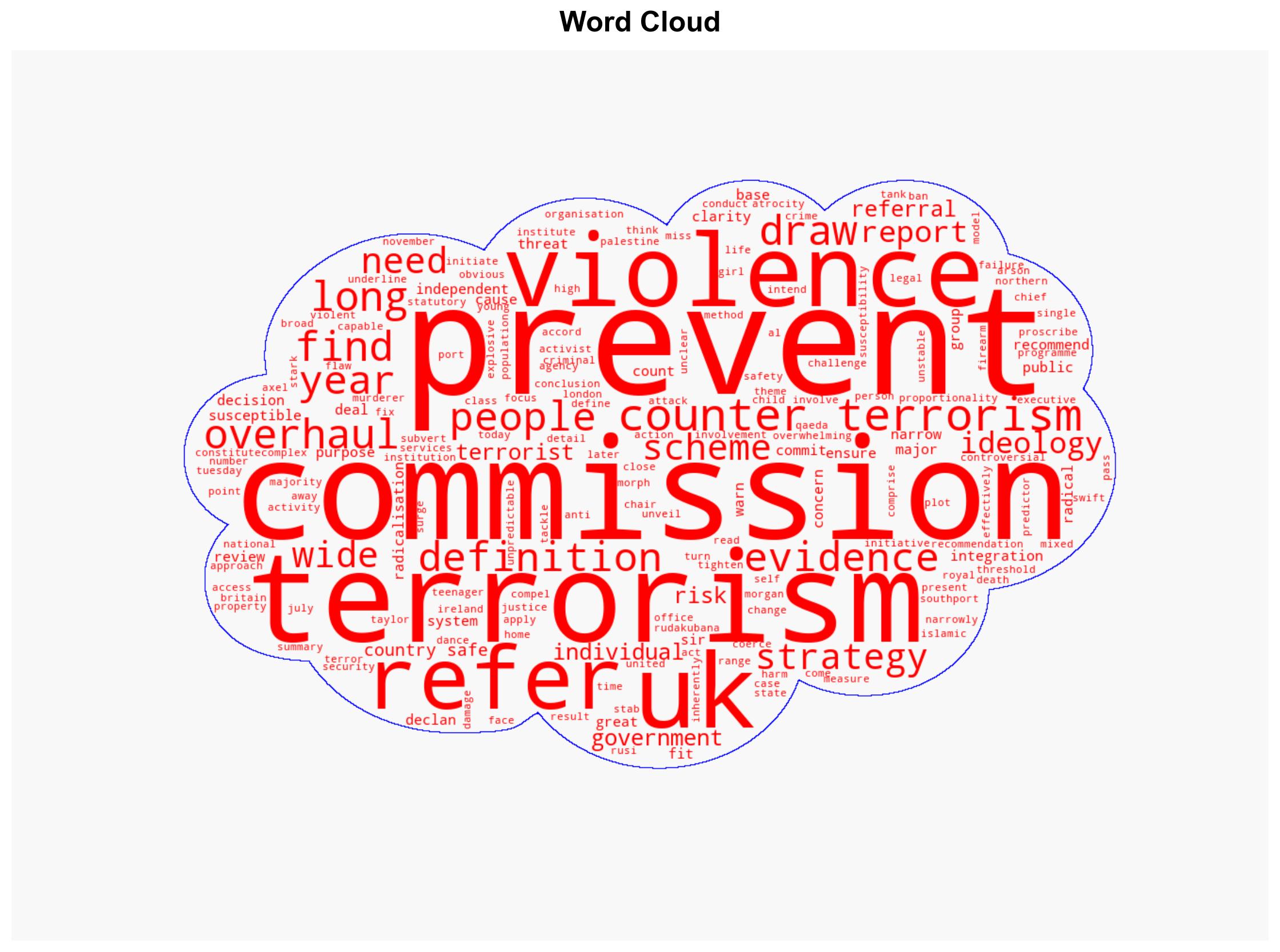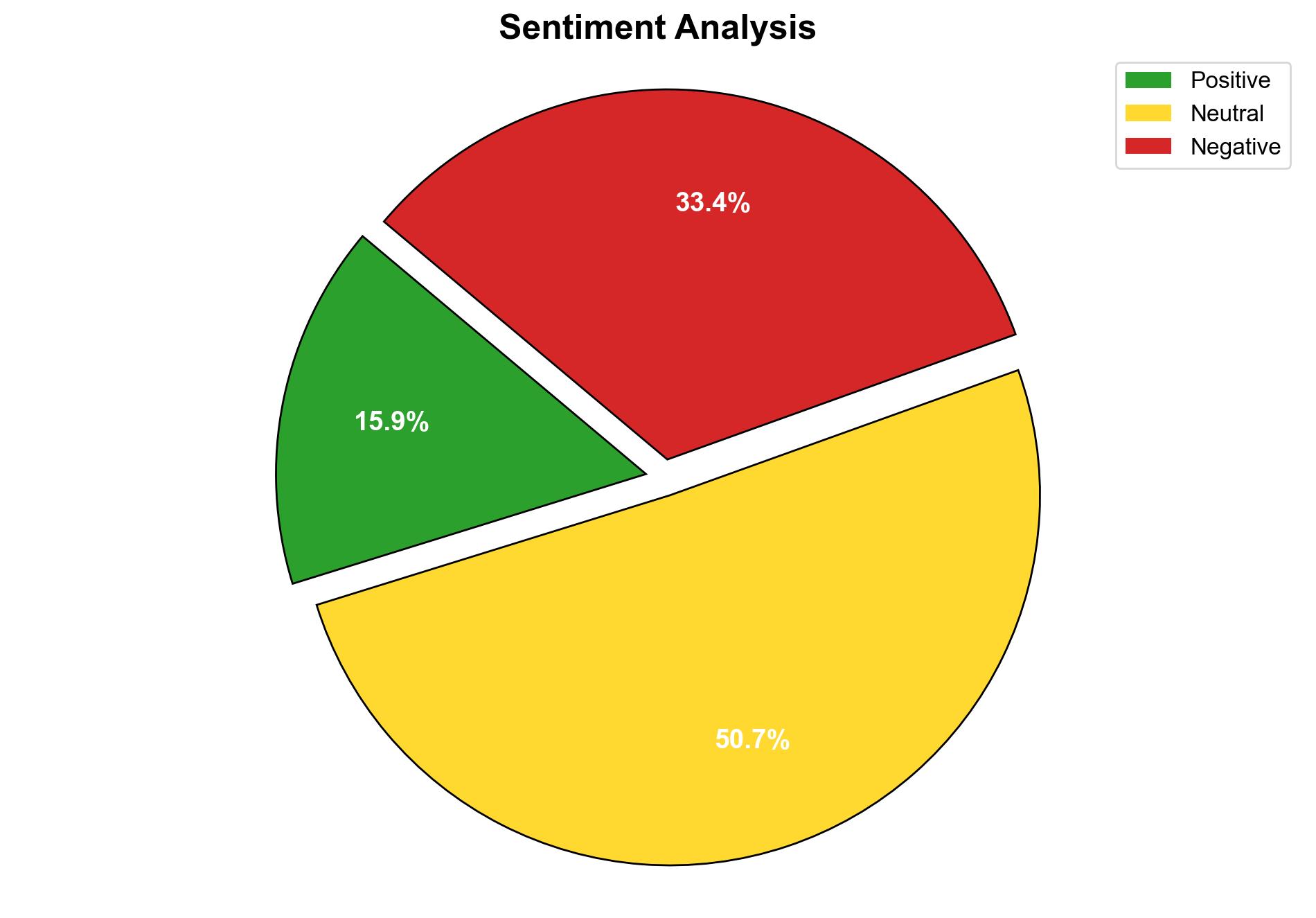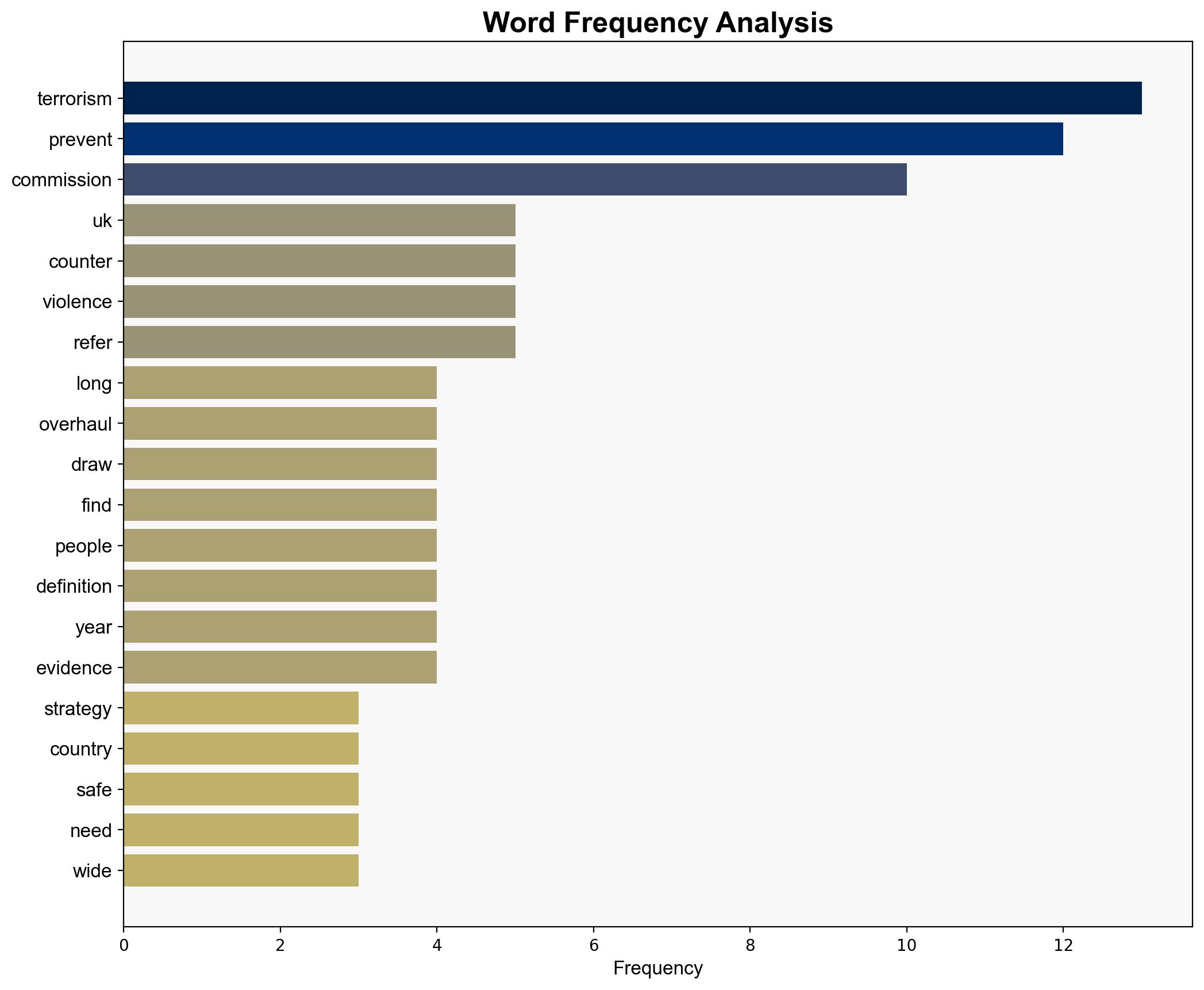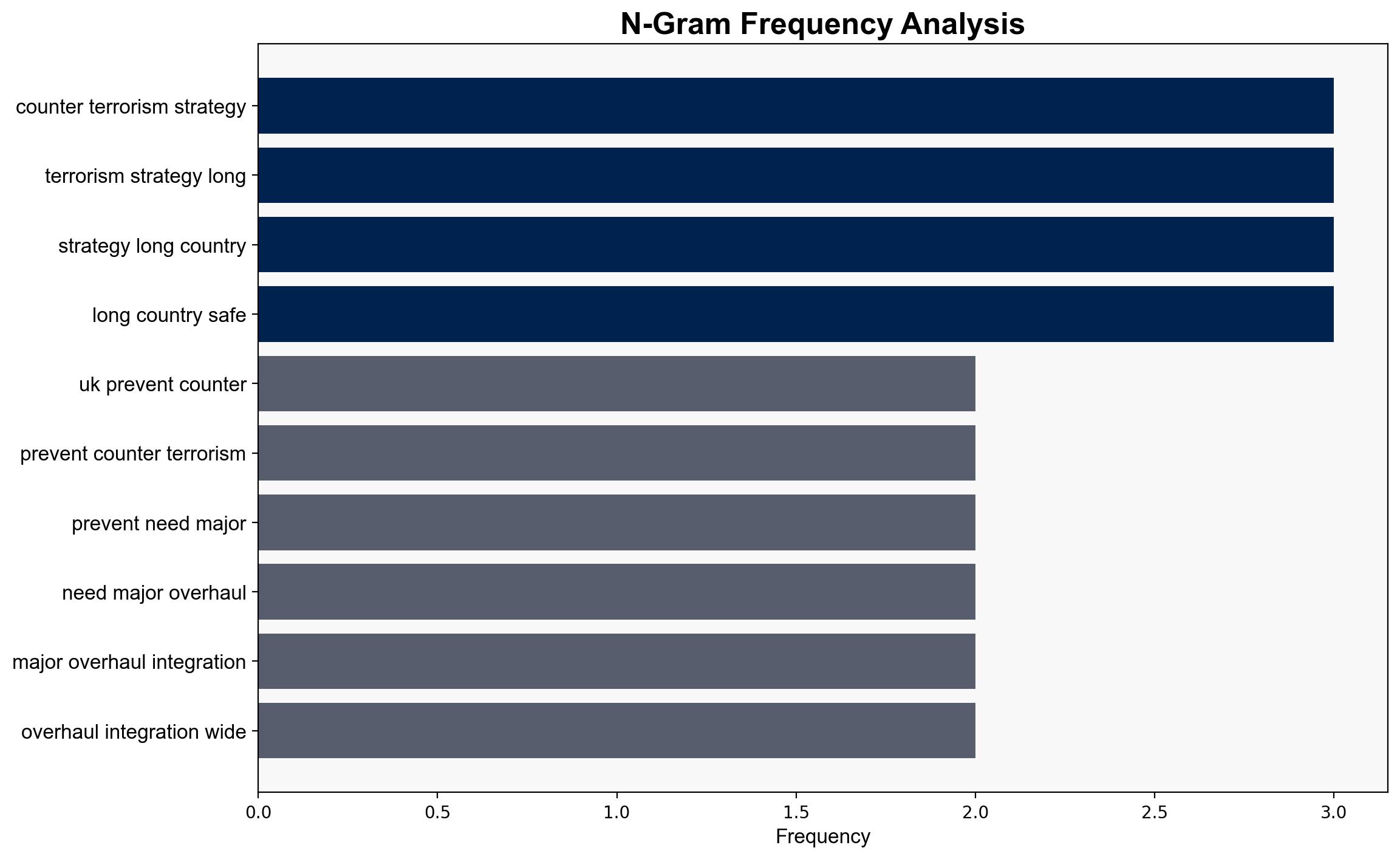UK’s Prevent counter-terrorism strategy ‘no longer keeping the country safe’ – Sky.com
Published on: 2025-11-11
AI-powered OSINT brief from verified open sources. Automated NLP signal extraction with human verification. See our Methodology and Why WorldWideWatchers.
Intelligence Report: UK’s Prevent counter-terrorism strategy ‘no longer keeping the country safe’ – Sky.com
1. BLUF (Bottom Line Up Front)
The UK’s Prevent counter-terrorism strategy is deemed ineffective by an independent commission, necessitating a major overhaul. The most supported hypothesis is that the strategy’s broad approach and flawed radicalization model fail to address the evolving nature of terrorism threats. Confidence Level: Moderate. Recommended action includes revising the strategy to incorporate a narrower definition of terrorism and enhancing integration with broader systems to prevent violence.
2. Competing Hypotheses
Hypothesis 1: The Prevent strategy’s broad and outdated approach is ineffective in addressing modern terrorism threats, leading to its failure in keeping the UK safe.
Hypothesis 2: The Prevent strategy is fundamentally sound, but its implementation is flawed, leading to inefficiencies and missed opportunities to prevent terrorism.
Assessment: Hypothesis 1 is more likely due to the commission’s findings that the current strategy is based on a flawed radicalization model and lacks clarity in defining terrorism. The evidence suggests a need for a strategic overhaul rather than mere implementation adjustments.
3. Key Assumptions and Red Flags
Assumptions: The commission’s findings are unbiased and based on comprehensive data. The current strategy’s broad approach is inherently flawed.
Red Flags: Potential bias in the commission’s report due to political or institutional influences. Lack of detailed evidence supporting the claim that a narrower definition of terrorism will improve effectiveness.
Deception Indicators: No clear indicators of deception identified, but the possibility of underreporting or misrepresentation of data by stakeholders cannot be ruled out.
4. Implications and Strategic Risks
The failure of the Prevent strategy poses significant risks, including increased vulnerability to terrorist attacks and potential escalation of violence. Politically, this could lead to public distrust in government counter-terrorism efforts. Economically, increased security threats could deter investment and tourism. Informationally, ineffective strategies could lead to misinformation and panic among the public.
5. Recommendations and Outlook
- Revise the Prevent strategy to include a narrower, clearer definition of terrorism.
- Enhance integration with other systems to address the root causes of radicalization.
- Implement regular reviews and updates to the strategy to adapt to evolving threats.
- Best-case scenario: A revised strategy effectively mitigates terrorism threats, restoring public confidence.
- Worst-case scenario: Continued failure leads to increased terrorist activity and public unrest.
- Most-likely scenario: Partial improvements are made, but challenges persist due to the complex nature of terrorism.
6. Key Individuals and Entities
Sir Declan Morgan, Chair of the independent commission. Axel Rudakubana, referenced in a case study within the report.
7. Thematic Tags
Counter-Terrorism
Structured Analytic Techniques Applied
- ACH 2.0: Reconstruct likely threat actor intentions via hypothesis testing and structured refutation.
- Indicators Development: Track radicalization signals and propaganda patterns to anticipate operational planning.
- Narrative Pattern Analysis: Analyze spread/adaptation of ideological narratives for recruitment/incitement signals.
Explore more:
Counter-Terrorism Briefs ·
Daily Summary ·
Methodology





